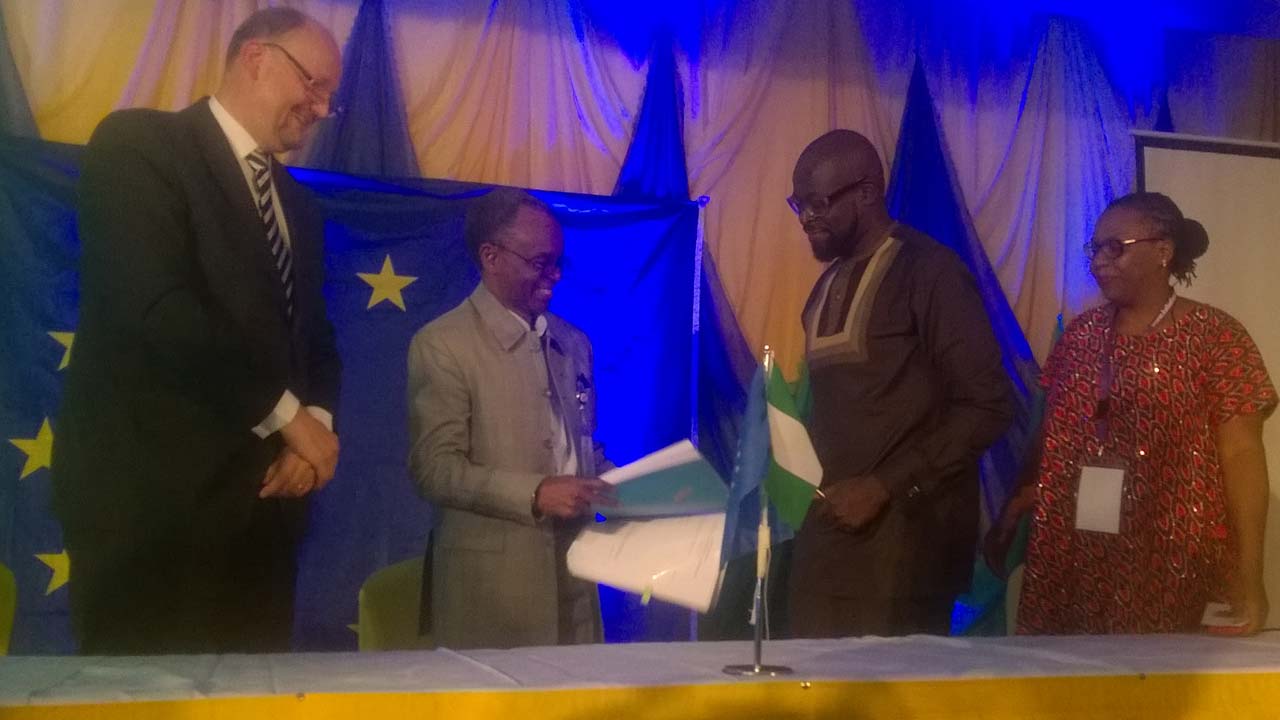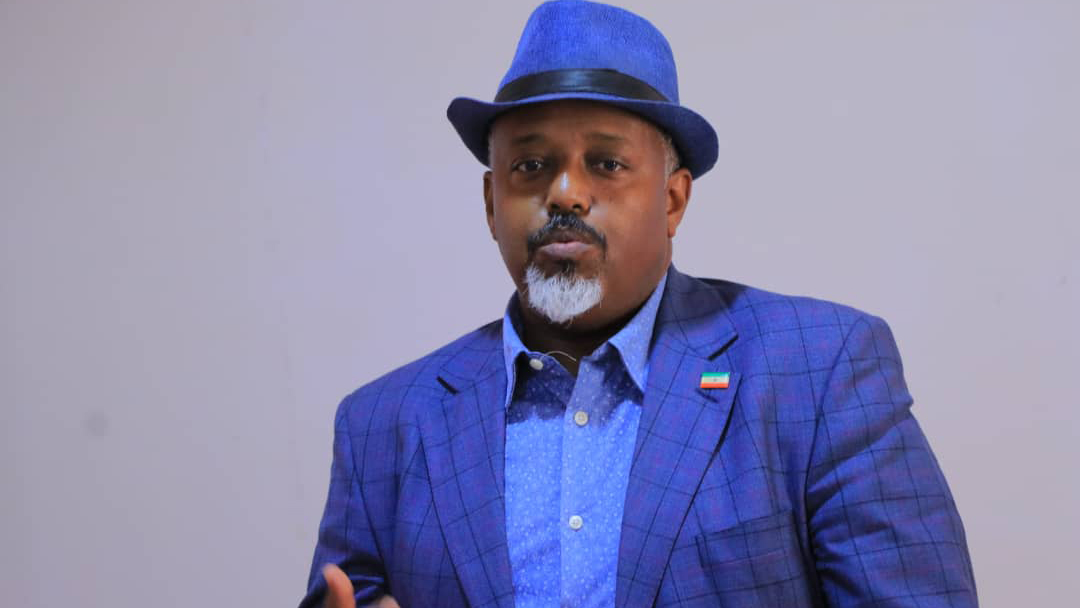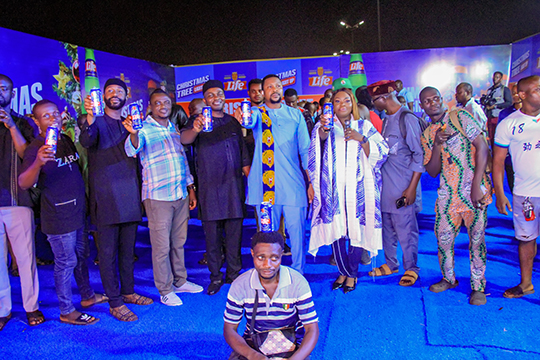
For the most part, Northern Nigeria seems like a closed book to many, especially those in the Southern part of the country. The interweaving of politics and culture, firmly embedded in the underbelly of religion, has not made matters any easier. And so narratives from that vast space of multiplicity and diversity come in somewhat mixed baggage. But the space has, inexorably, begun to open up. Two recent fictional narratives from Northern Nigeria – Abubakar Adams Ibrahim’s Season of Crimsom Blossom and ElNathan John’s Born on a Tuesday and an earlier one by Richard Ali, City of Memories – have served to open up conversations in ways not possible until now. Many other publications have also been added to make interaction about Northern Nigerian even more iall-embracing, with the woman marching alonside the men in ways never before dreamed of.
The initiative of Kaduna State Government, under Mallam Nasir Ahmad El-Rufai, to organise a book and art festival, called Kaduna Book and Arts Festival (KABAFEST 2017) is a service designed to widening the conversation about Northern Nigeria. The eagerness with which the idea was embraced by cultural workers and many others in the region also attests to it being a project long overdue. Although there were dissenting voices prior to the opening, but when the festival finally opened on Tuesday, July 5, 2017, there wasn’t a shred of doubt about its appropriateness.
Organised by Book Buzz Foundation, in patnership with Kaduna State Government and Gusau Institute, with support also coming from FCMB, Marine Platforms and Peugeot, KABAFEST has set for itself an oasis for the in-gathering of those who thirst for knowledge of a region usually shrouded in strictures of religious and cultural myths.
At the opening, Book Buzz Foundation boss and festival director, Lola Shoneyin, spoke about the reawakening of cultural consciousness in the region, with the voluntary support of individuals towards uplifting standards of education and learning and opening up awareness dialogue that now seems like a moving training bound for the a desired destination long delayed.
According to her, “It is always a pleasure to come to Kaduna State.Eight months ago, the Book Buzz Foundation delivered 10,000 books to 100 primary schools across Kaduna State, paid for, as a gesture in Corporate Social Responsibility by Marine Platforms Ltd. Today, we at Book Buzz Foundation are proud, as part of a private-public partnership with Kaduna State Government and Gusau Institute, to deliver the first edition of Kaduna Book and Arts Festival, the first of its kind in Northern Nigeria.
“I would like to congratulate the people of Kaduna State, and indeed, Northern Nigeria, on hosting an event with so many accomplished writers and thinkers, so many talentedand distinguished artists, poets and filmmakers. It is never easy to coordinate the convergence of so much creative brilliance, but when it happens, it is nothing short of magical. From my experience of running Ake Arts and Book Festival, I have seen the power of cultural dialogue, I have seen how the interactions and exchange of ideas can break down the barriers that separate us,then build, in their place, enduring bridges.
“Our country is fractured in many places at the moment, and it often seems like there is conflict brewing every way you turn. Yet, in spite of the religious, ethnic and cultural variances, one thing that you will consistently find with creative individuals is the impulse to interrogate the workings of our world as a way of understanding it. There is a compulsion to articulate the complexity of the choices we make, a need to constantly find answers to the question: how exactly did we get here? And this is why their writings, their artworks, their poems, their music, their films move us. We come face-to-face withour vulnerability, our pain, our hunger, our fears, our strengths and our triumphs.
“For this first edition of KabaFest, we have tried to put together a programme of events that provides variety – something for everyone. We worked hard to steer the discussions towards issues that are especially relevant to this region of Nigeria, while recognising that these issues, no matter how obscure they seem at times ultimately touch us all. We tried to spread our tentacles as far and as wide as possible, with the knowledge that it is impossible to invite everyone who deserves to be here. We hope that this will be the first of many KABAFESTs, and that over time whatever omissions there are can be rectified, that as the years go by, we continue to seek out talent, to reach out to people who have something to teach us and to touch on the issues that are pertinent: literature, writing, publishing, religion, tolerance, womanhood, manhood, diversity and so much more.
“That Kabafest can contribute to better understanding through dialogue is not an abstract wish. If indeed our aim is to foster tolerance of diverse opinions, then we have to start by agreeing that Kabafest is a safe space, where we can listen and be heard, where we can be frank and uninhibited and tell our truths. And if we can all agree to this, we will all come away better educated, entertained and enriched.”
ON his part, the state governor, El-Rufai, canvassed the need to harness and use Nigeria’s abundant talents in all areas of the creative arts as means of cultural dialogue and economic dynamism. He also noted that the diversity of talents in the country should be a source of pride that all well-meaning individuals and corporate organisations should identify with and actively promote. The governor said KABAFEST is in line with the state’s ‘Creative Arts Programme’ initiative, which he said “is devoted to nurturing, promoting and celebrating the creative potential of our people. It is a manifest commitmenmt of this government to support the arts creatively and our creatives themselves.”
El-Rufai further stressed the need to harness the cultural diversity of the state and Nigeria and use literature and the arts as tools to better understand this diversity for harmonious relationships, saying literature makes for better understanding of people. According to him, “As one of the largest states in the country, Kaduna is an epitome of dibversity, from cultures to language to landscape. This variety is a blessing, and the interaction of these cultures enriches us all. Literature and other forms of the arts contribute immensely to helping us understand oen another better. The artists, presented in our traditional music, our indigenous poetry and our facinating visual arts and sculptures have been in\strumental articulating our past and our [present. Where better to turn to for answers partaining to where we can go?
“Cultural dialogue, apart from the creative arts, are in themselves sources of economic dynamism. The Nigerian film industry, our musicians and our photographers are breaking new grounds and demonstrating sustained viability. As such, it is one of the prioties to promote the creative arts to nurture minds, but also to create jobs and wealthy for our people.”
A major highlight of the opening ceremony was the signing of the literacy project, ‘Write to Right Project’ memorandum of understanding, between the European Union, represented by its Ambassador, Michel Arrion, and a French cultural organisation, Africultures, represented by Moise Gumis, to propagate massive literary and digital projects in five states in the North – Kaduna, Katsina, Borno, Adamawa and Bauchi. It had El-Rufai as witness. The project would support creativitity, production and repreoduction of educational and recreational books in the five states and engage over 25 witers and support over 10,000 teachers to make impact. The project is worth EUR 3 million (N3 billion).
Arrion harped on maintaining the freedom and liberties of individuals as foundation for modern societies, saying they are the values that the European Union holds dear and wishes its partners to embrace and propagate as well.






